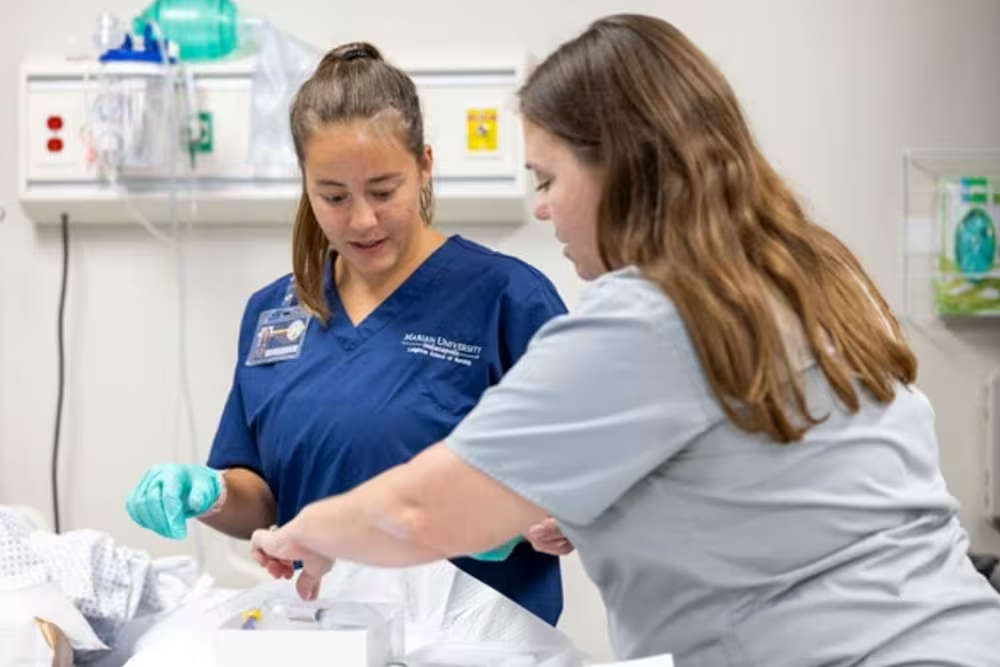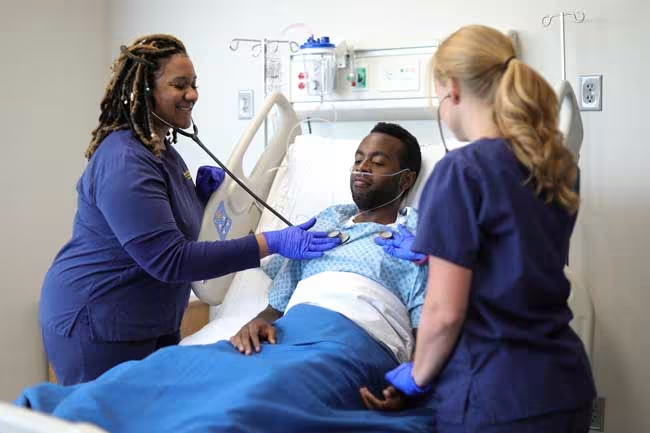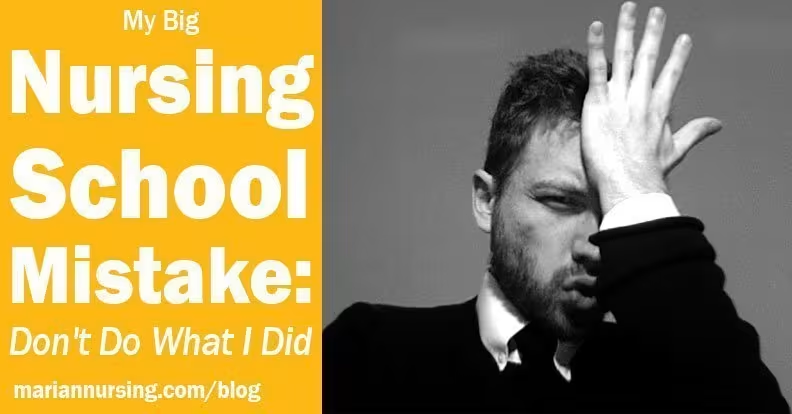Understanding Nursing Clinicals: What to Expect During Your Clinical Rotations in Nursing School
Clinicals play a pivotal part in your nursing school experience. Not only do they incorporate all the nursing theories and skills you’re learning in your […]
Each blog post is dated and contains accurate information as of that date. Certain information may have changed since the blog post publication date. If you would like to confirm the current accuracy of blog information, please visit our ABSN overview page or contact admissions at 866.892.6463.
Nursing clinicals are crucial to the development of a nurse, giving an opportunity to apply their knowledge in real-world situations in a supervised environment. Clinical rotations help prepare you for the career through hands-on experiences in a variety of practice areas, mentoring, and even networking.

Clinicals play a pivotal part in your nursing school experience. Not only do they incorporate all the nursing theories and skills you’re learning in your coursework and skills and simulation labs, they also offer a first-hand look at what it’s really like to work as a nurse in a variety of real-world patient care scenarios.
Prospective students often want to know what to expect during nursing school clinicals. To give a better idea of what lies ahead, let’s see how clinical rotations through Marian University’s Accelerated Bachelor of Science in Nursing (ABSN) program uniquely position you for success in this profession.
What Are Nursing Clinicals?
Have you wondered “What are clinicals?” Simply put, nursing school clinical rotations involve nursing students treating and working with patients in local healthcare facilities under the supervision of clinical instructors.
Responsibilities and learning opportunities will vary from day to day. One day, you might watch bone biopsies, and the next you could be taking vital signs on patients. Clinicals not only give students the chance to learn about treatments like hyperbaric oxygen therapy but also provide opportunities to connect with experienced nursing professionals and refine their skills.
How Long Are Clinical Rotations for Nursing School?
Each nursing school has its own timeline for the overall program. As a Marian ABSN student, you can expect to complete hundreds of hours of clinical rotations across four full-time semesters. This is broken down into 8- to 12-hour clinical shifts, multiple days a week. This structure is designed to mimic the typical shifts you would work as an established nurse.
Since the program is accelerated, you should expect clinical rotations to begin early in the program, providing more opportunities to put theories into the context of real-world patient care situations.
Since you’re completing clinical rotations in a hands-on healthcare environment, you’ll experience all kinds of patient situations, medical procedures, and general nursing responsibilities. This format allows students to get a real taste of nursing and see early on if it is a good fit for them.

How Clinical Rotations Prepare You for a Nursing Career
Clinical rotations are a crucial part of preparing for a nursing career, providing real-world patient care experience that builds confidence, provides valuable insights, and fosters career networking and relationship building within the field.
Former students often describe clinical rotations as a long interview. They gain guidance and enable others to observe how they carry themselves professionally. You never know who could refer you to a job or give you a heads-up in the future.
Marian University also offers a unique leadership clinical, pairing ABSN students with nurse managers within Ascension St. Vincent in Indianapolis or Ascension Saint Thomas in Nashville, depending on your program location. This experience helps nursing students understand the role of a nurse manager.
Nursing school is what you make of it, but Marian University provides various resources within the program. The faculty genuinely wants to help, and there are clinical instructors, success coaches, and tight-knit cohorts all pushing you to take full advantage of everything to set up your future career.
Can I Choose My Clinical Rotation Site?
While you can choose the program site you want to enroll in, you will not have input on where your clinical rotations take place. Marian partners with Ascension St. Vincent in Indianapolis, Indiana, and Ascension Saint Thomas in Nashville, Tennessee. The site you are enrolled in will determine the hospital where you complete your clinicals. You cannot switch to a different hospital for clinical hours through the Marian ABSN program.
That said, each organization offers valuable learning experiences that will help you grow as a nurse and gain exposure to various practice areas.

See why Tennessee is a good place for nurses.
What Happens If I Make a Mistake During Clinicals?
Marian University cultivates a supportive learning environment where making mistakes is part of the process. No one expects nursing students to be perfect. Clinicals are a chance to learn, improve and develop your skills in a safe setting.
See someone’s story on navigating mistakes.

How to Stand Out During Your Clinical Rotations for Future Job Opportunities
Making a great impression on both professionals and peers often starts with being organized. Know your schedule and make it a priority to be on time for every shift. This habit will not only help you during clinicals but will set a strong foundation for your future work life. Showing a genuine desire to learn and asking questions signals that you are teachable. Think of yourself as a sponge, ready to soak up as much knowledge as you can. This attitude also helps you build strong relationships with experienced professionals.
Additionally, taking care of yourself plays a big role in your success. Getting proper rest and eating well can make a significant difference in keeping your mind sharp. Clinical rotations can be long and demanding, so staying refreshed and mentally alert is key.
Start Your Nursing Career Today With Marian ABSN
Nursing clinicals expose you to patient populations and healthcare settings, giving you a clearer picture of what it's like to work as a nurse after graduation. While our ABSN program sets you up for success for your future career, you can take steps to make the most of your clinical experiences as well. At every step of the way, clinical instructors, nurse managers, and fellow cohort members will be there to help you succeed.
To learn more about what to expect during nursing clinicals in the Marian ABSN program, reach out to an admissions advisor today!
